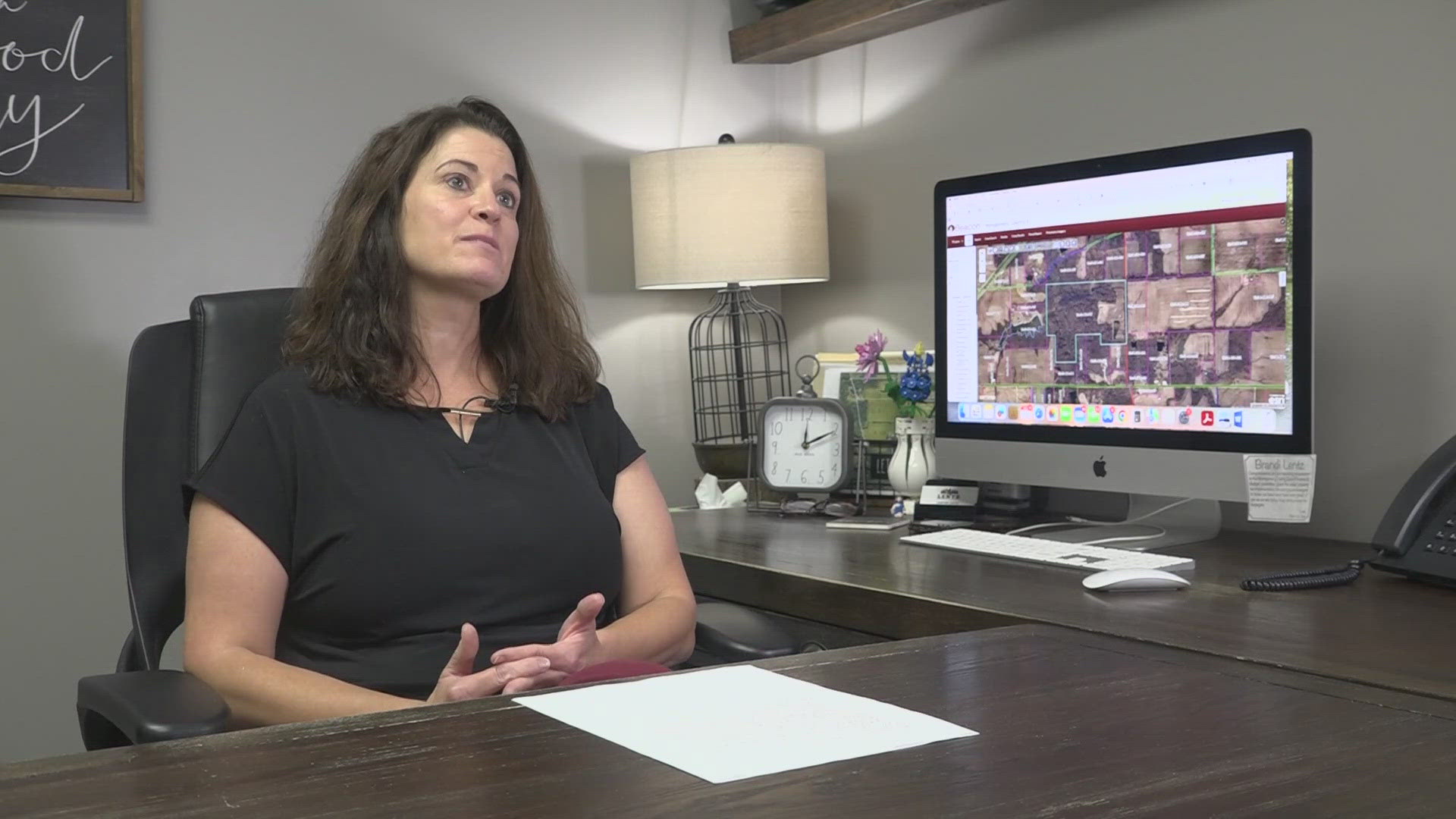!['football helmet safety'[ID=18181935] ID=18181935](http://www.gannett-cdn.com/-mm-/aac22ce6426cd2f155fd51c5dacad34de3dcb375/c=242-0-1678-1080&r=115x86/local/-/media/KSDK/None/2014/10/30/635502718733850108-Still1030-00000.jpg) ST. LOUIS - It's the most popular sport in America, but for athletes in high school, football is also the most dangerous. The risk of head injury is high. A recent study says some football helmets protect players better than others. We've spent the past three months investigating what types of helmets high schools in our area use. What we've uncovered in this pile of paperwork may surprise more than a few parents.
ST. LOUIS - It's the most popular sport in America, but for athletes in high school, football is also the most dangerous. The risk of head injury is high. A recent study says some football helmets protect players better than others. We've spent the past three months investigating what types of helmets high schools in our area use. What we've uncovered in this pile of paperwork may surprise more than a few parents.
DATABASE -- Check your school's helmet rating
Every high school football season, Friday night lights shine on fields all over the bi-state area. A closer look reveals they also cast a dark shadow.Studies show athletes playing football are twice as likely to suffer a concussion then in any other sport.Janet Hill's son, Charlie, plays on the Fox High School Freshman team.
"I didn't want him to play football… It's too rough," she said.
Charlie got the ball on the first play of the first scrimmage of the year.
"The play kind of got messed up a little bit and I wasn't really looking at where I was going and I got picked up by the linebacker," he said.
"Another boy just slammed him. He went up in the air and diving on his head," Janet said.
The season was still weeks away and doctors told Charlie he had suffered a concussion.
"It got worse and worse for a few days," Charlie said. "When school first started, I had bad headaches walking to my classes. I got dizzy."
Though he didn't know it at the time, engineers at Virginia Tech University were doing research with players like Charlie in mind.
"Of all sports, the risk of head injury in football is the greatest," said Dr. Stefan Duma.
Duma and his team of biomechanical engineers research everything from auto safety to protecting military troops. They've also spent the last decade looking at football helmets.
"So we took 10 years and millions of data points, brought it in the lab, and recreated test energy levels to simulate what players see on the field," Duma said.
The goal to find out which football helmets are better at reducing the risk of concussion. First they put sensors in football helmets to record how many times a player is hit, in what direction and the magnitude. Using that information, they created a drop test to use on helmets most commonly used by high school football teams. Each model gets tested 120 times at different heights and different directions. The amount of impact absorbed by the helmet is then measured and a star rating is assigned: 1 to 5, with 5 being the best.
"And to put numbers on that, I can take, for one drop test a one star helmet and I'll get 150 Gs, replace it with a five star helmet and cut that in half to 75 Gs," said Dr. Duma.
Duma says based on which helmet you use, you can reduce your risk of concussion by more than 50 percent. NewsChannel 5 wanted to see how our high schools measure up. We received information from more than 140 schools in the bi-state area about the makes and models of helmets they are using. We found that the majority of the schools have four and five-star helmets. We also found about a third of our schools are using one and two-star helmets.
"When you look at the differences between the one and the five star helmets, it's so dramatic, I would certainly say we're big advocates for schools getting rid of their old, bad helmets and getting newer, better helmet," Duma said.
At St. Charles West, 106 of 122 helmets were four and five star. Sixteen of them were one star helmets. They were unaware of the Virginia Tech study and welcomed the information.
"My reaction was is knowledge is power. If there's a study out there that can help us pick equipment that will help us keep our students safe I want to know about it," said Dr. Jeff Marion, superintendent of the St. Charles School District.
Between practice and games, high school football players can get hit hundreds of times each year and one thing is clear: no football helmet can prevent all concussions. As it turns out, Charlie Hill was wearing an acceptable three-star helmet when he suffered his concussion and he's back on the field at Fox.
His mom continues to be concerned.
"I hadn't thought about it before he got a concussion, what kind of equipment they had issued to him and I think I probably need to know that," said Janet. "Parents need to know."
Only public schools had to respond to our requests and every school we contacted uses certified helmets from the national operating committee on standards for athletic equipment, better known as NOCSAE.
We understand this story may actually create more questions, click here for a list of answers to some frequently asked questions.


